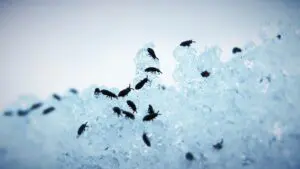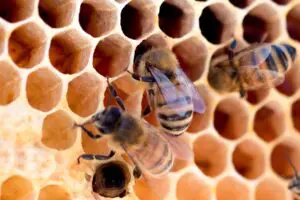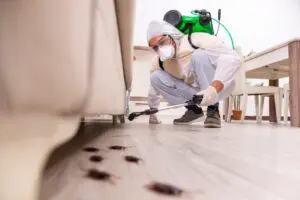

Spring is here! Officially anyway. Sure, we’ve had 8 to 20 inches of snow covering the state and temperatures that flirted with freezing, but the weather will soon reflect the calendar. When it does, unwelcome company will be migrating from the south, burrowing up from their winter hideaways and crawling sleepy-eyed from tree holes and logs.
To protect your home and keep your family safe, it helps to know about the most harmful of them and how Excel can help you control these pests. In this article, we’ll cover these common Spring Pests and offer tips on how to protect your home.
1. Ticks
Ticks are a major concern in New Jersey, especially in spring when their activity spikes. According to pest control experts, ticks in NJ are expected to be particularly problematic this year. The state’s humid climate and abundant wooded areas provide an ideal environment for ticks to thrive. Deer ticks, the primary carriers of Lyme disease, are especially prevalent. They may not invade your home directly, but if your property is near open fields or wooded areas, these pests can quickly take over your yard, posing a serious threat to both you and your pets.
The consequences of a tick bite can be severe, ranging from rashes and fevers to more serious conditions like Lyme disease. Professional tick control services are essential to reduce the risk. This typically involves the application of insecticides along property perimeters and trails, targeting the areas where ticks are most likely to enter your yard. By managing ticks in NJ early in the season, you can enjoy a safer, more comfortable outdoor environment.
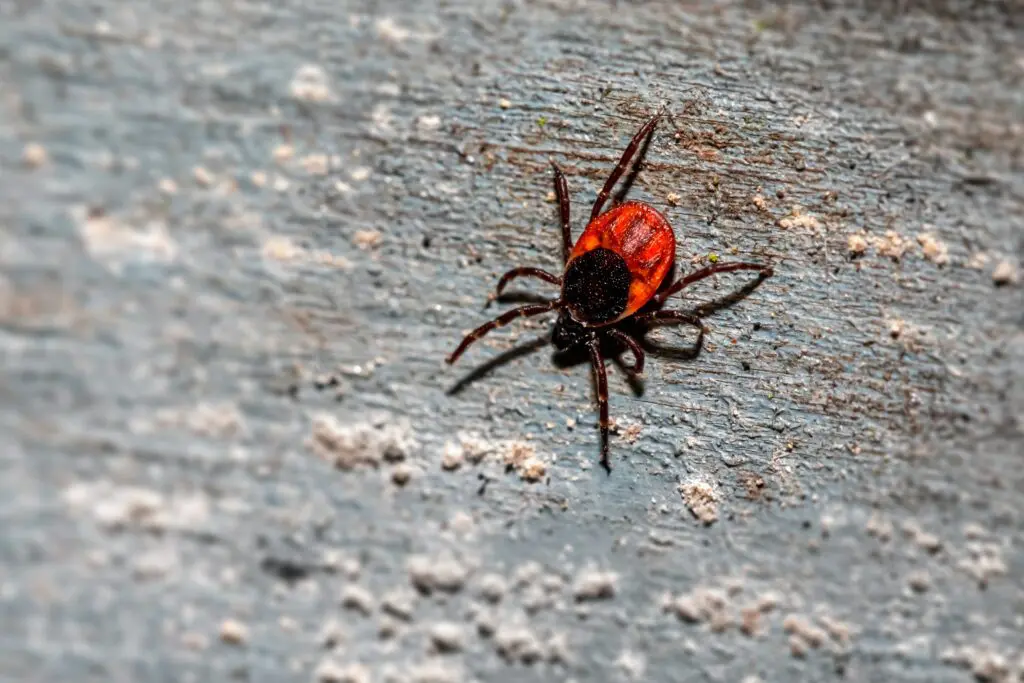
2. Mosquitoes
New Jersey is home to more than 63 species of mosquitoes, with the Asian Tiger mosquito being one of the most troublesome. These mosquitoes in NJ are more than just a nuisance—they’re a real health hazard. The females are aggressive biters, needing blood to produce eggs. While the typical mosquito bite might leave you with an itchy red bump, the real danger lies in the diseases they can transmit, such as West Nile virus, encephalitis, and dengue fever.
To reduce the risk of mosquito-borne illnesses, it’s crucial to eliminate standing water around your property, as this is where mosquitoes in NJ lay their eggs. Birdbaths, flower pots, and trash bins are common culprits. However, due to the severity of the diseases these pests can spread, professional mosquito control is recommended. Treatments can significantly reduce mosquito populations, making your yard a safer place to relax and play during the warmer months.
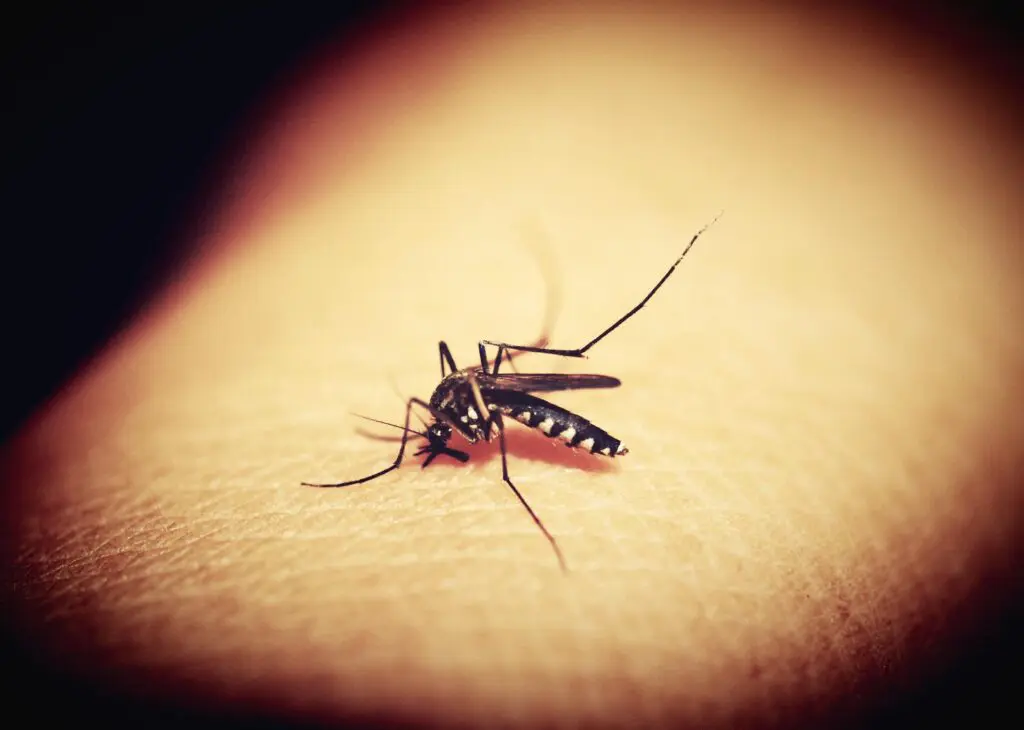
3. Termites
Termites in NJ are a year-round threat, but they become particularly active in spring. The Eastern subterranean termite, common in New Jersey, is notorious for its ability to cause extensive damage to homes. These termites don’t hibernate during the winter; instead, they dig deeper into the ground to stay warm, continuing to feed on the wood that makes up the structure of your home.
As temperatures rise, these termites become more visible, often swarming in large numbers to reproduce and establish new colonies. The presence of winged termites, or a "spring swarm," is a clear indication that your home is under attack. If left untreated, termites in NJ can cause significant structural damage, leading to costly repairs. The best defense is a professional termite treatment, which not only eradicates the existing colonies but also provides ongoing protection to prevent future infestations.
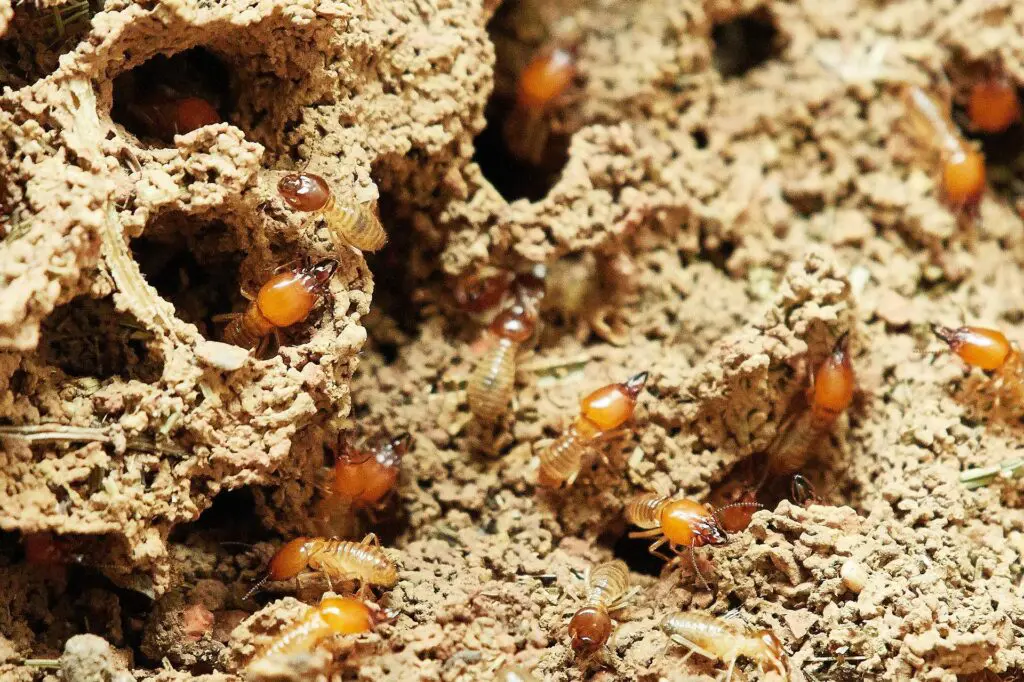
4. Carpenter Ants
Ants in NJ, particularly carpenter ants, are another springtime threat. Unlike termites, which prefer dry wood, carpenter ants are drawn to damp, decaying wood. They are larger than most other ant species, with the black carpenter ant being the most common in New Jersey. These ants are particularly active in the spring as they emerge from dormancy and begin to expand their colonies.
While ants in NJ may not cause as much structural damage as termites, they can still be a significant problem. Carpenter ants burrow into wood to create their nests, which can weaken the structure of your home over time. They are also difficult to eradicate without professional help, as different species of carpenter ants may require different treatment strategies. A tailored approach by a professional pest control service is essential to effectively manage and eliminate these pests from your property.
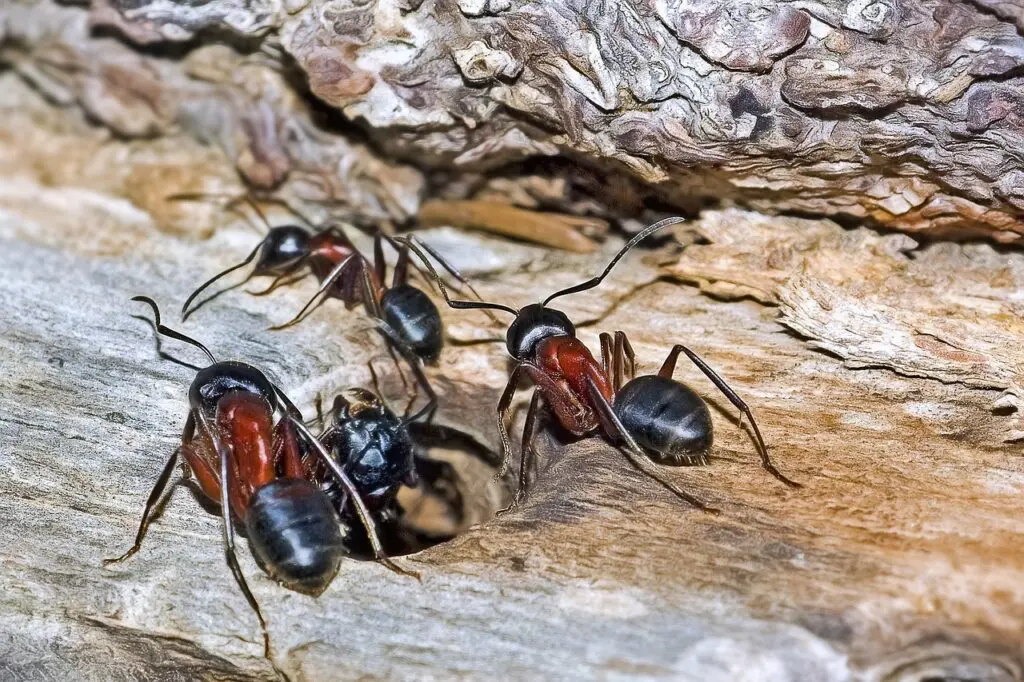
5. Wasps
Wasps are a new addition to our list of Spring Pests in New Jersey. These stinging insects become highly active in the spring as they emerge from hibernation to build new nests. Wasps can be particularly aggressive when they feel their nests are threatened, posing a risk to anyone nearby, especially those who are allergic to their stings.
Common types of wasps found in New Jersey include yellowjackets and paper wasps. These pests are known for building nests in attics, under eaves, and in other sheltered areas around homes. Removing a wasp nest can be dangerous and should be left to professionals who have the experience and protective equipment to handle the situation safely. By addressing wasp infestations early in the season, you can avoid the risk of painful stings and potential allergic reactions.
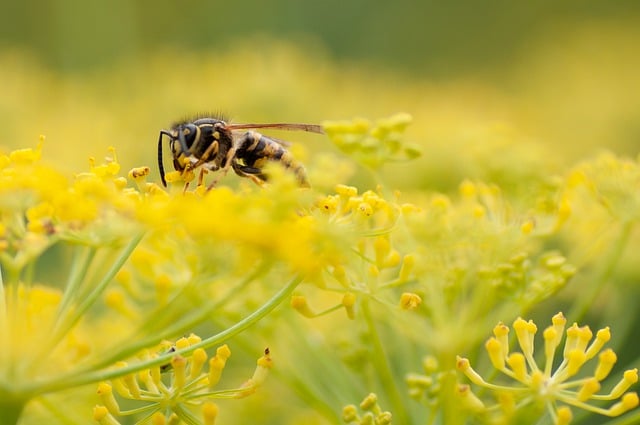
6. Spotted Lanternfly
The spotted lanternfly is an invasive species that has become a significant problem in New Jersey over the past few years. Native to Asia, this pest was first detected in the United States in 2014 and has since spread rapidly across several states, including New Jersey. The spotted lanternfly feeds on the sap of a wide variety of plants, causing damage to crops, trees, and ornamental plants.
These insects are particularly harmful to grapevines, fruit trees, and hardwood trees. They can weaken plants, making them more susceptible to disease and other pests. If you see a spotted lanternfly in New Jersey, it’s important to report the sighting to local agricultural authorities to help control the spread. Additionally, homeowners can take steps to manage these pests by removing their preferred host plants and using insecticides approved for lanternfly control.
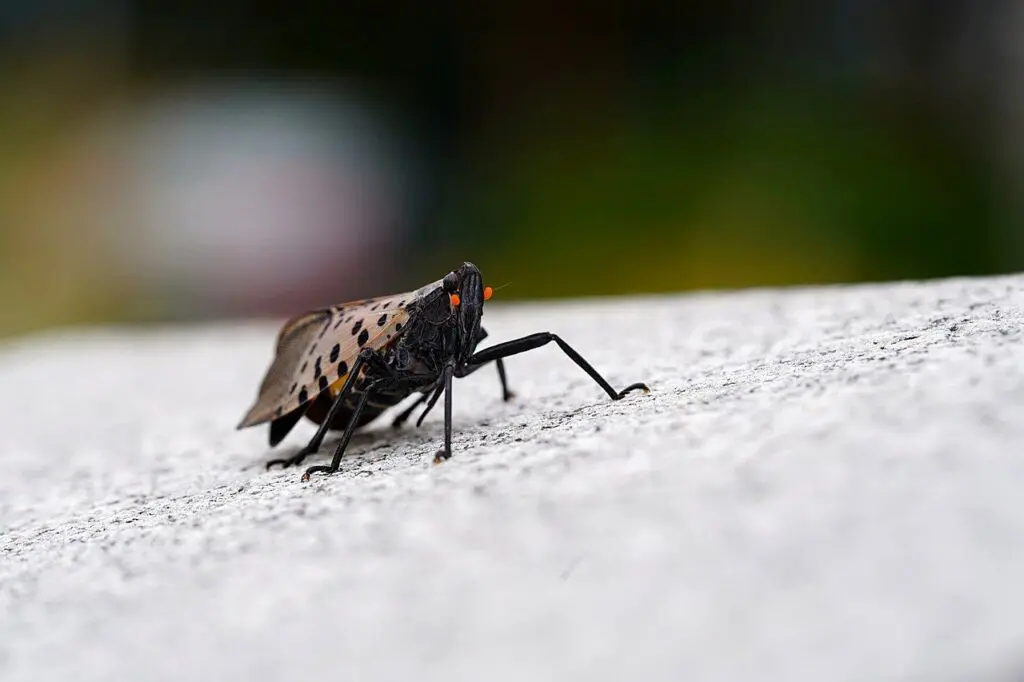
Conclusion
Spring in New Jersey brings not only warmer weather but also the resurgence of Spring Pests that can threaten your home and health. From ticks in NJ to termites in NJ, mosquitoes in NJ, ants in NJ, and the newly problematic wasps and spotted lanternfly, each pest requires a different approach to control and prevention.
By taking proactive measures and seeking professional pest control services for both commercial and residential properties, you can protect your space and enjoy a pest-free spring season. At Excel Pest Services, we’re here to help you keep your home safe from these and other pests.
FAQ
What are these new bugs in New Jersey?
The spotted lanternfly is one of the newer pests causing problems in New Jersey. This invasive species, native to Asia, was first detected in the state a few years ago and has since spread rapidly.
Do bugs come out in spring?
Yes, spring is the time when many Spring Pests become more active as the weather warms up. This includes ticks, mosquitoes, ants, termites, and wasps, among others.
How did lanternflies get to NJ?
The spotted lanternfly likely arrived in the United States through international trade, hitching a ride on imported goods. It has since spread to New Jersey and other states.
What do you do if you see a spotted lanternfly in NJ?
If you see a spotted lanternfly in New Jersey, report it to local agricultural authorities. This helps track and manage the spread of this invasive species. You can also take steps to remove them from your property using approved insecticides.




